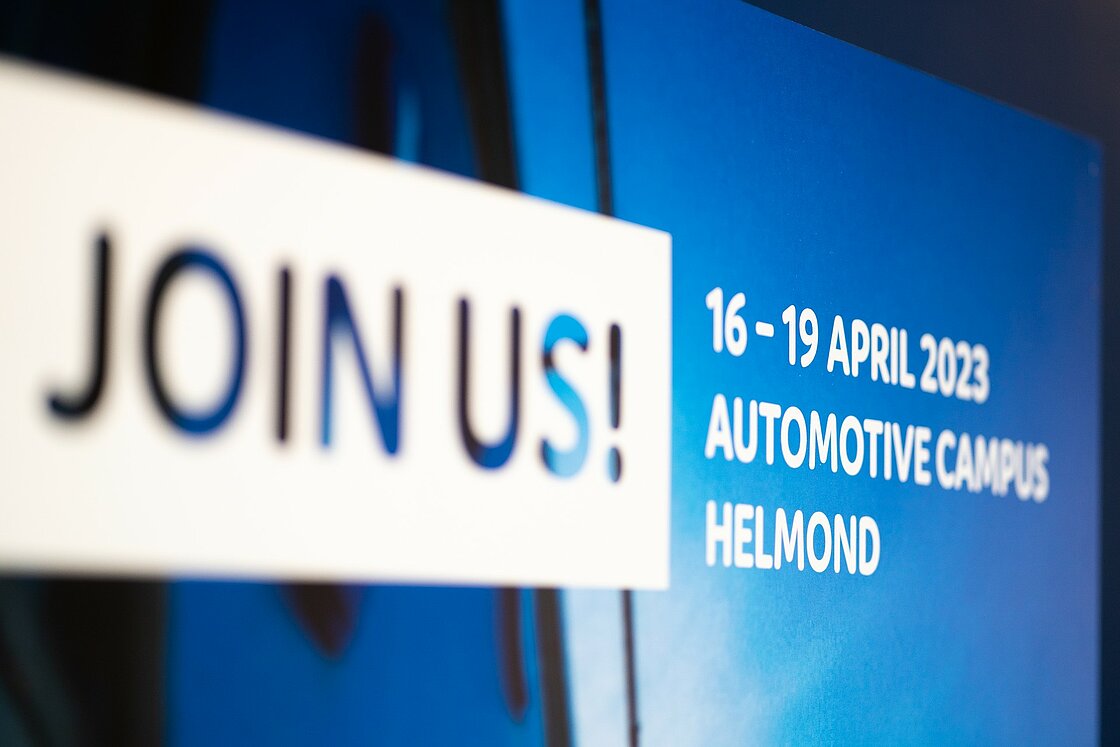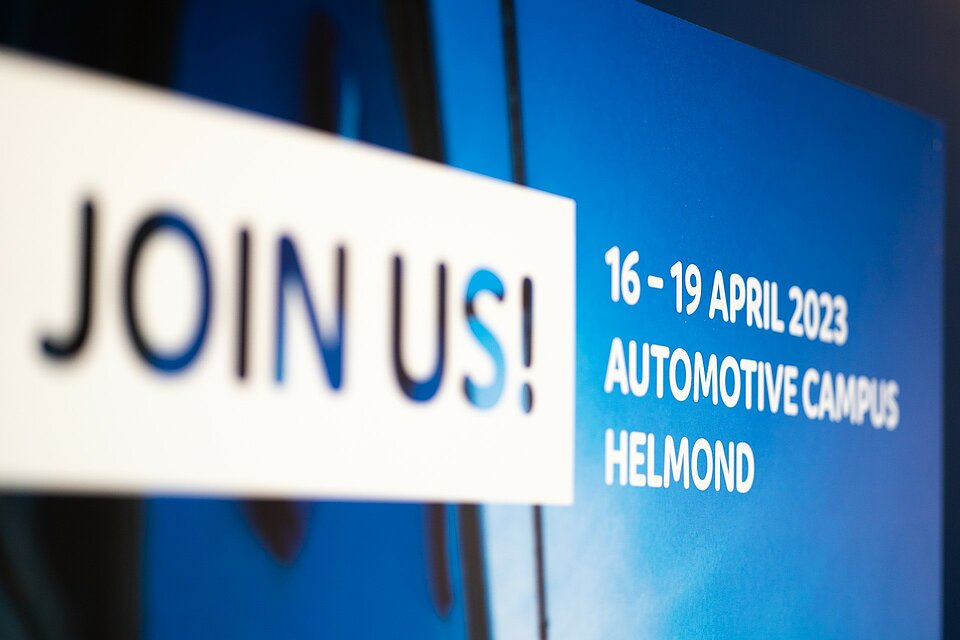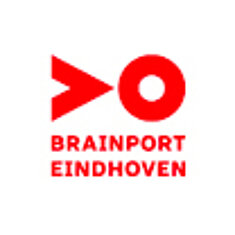‘There is plenty to gain, if you have something to share’

Interview with Freek de Bruijn of RAI Association and Geert van Seggelen of Brainport Development.
Please explain in short who you are?
My name is Freek de Bruijn and for the past three and a halve years I have been working as Program Manager for RAI Association as part of the Automotive Industry NL section. In this role, I offer support to companies and knowledge institutes in the automotive industry, and I am the linking pin between the various parties.
RAI Association is a trade organization for the mobility industry, so we look after the interests of our members. The transition to zero emissions is one of the goals included in the HTSM Automotive Roadmap 2020-2030. In addition, the Netherlands wants to be technology independent. Therefore, the Association focuses on finding ways to achieve the sustainable mobility goals and to secure the future earning power of our members. Any means of transport requires a specific drive system based on capacity, range, or weight. That is why we are looking at a wide range of solutions; from development of innovative battery packs to use of hydrogen or e-fuels.
A couple of years ago, we, jointly with Brainport Development, started the Program Office Green & Smart Mobility. It is our goal to secure the Netherlands’ future earning power. An important precondition in this respect is that we want to realize the social goals and make sure that everyone can benefit from that earning power. Whereas Brainport has built a strong network in the region, RAI Association mainly focuses on the Netherlands as a whole. Within the program, we are closely working with more than sixty partners to realize the transition towards zero emissions.
We recognize that organizations must and want to collaborate to be able to make the switch from fossil fuels to renewable energy. We see collaborations throughout the value chain, but also between sectors that have never collaborated before. And we facilitate those collaborations.
My name is Geert van Seggelen, and I am Program Manager Mobility at Brainport Development. Within my team, we focus on improving accessibility to and the quality of life in the region. Jointly with the national government, the province of Brabant and the municipalities, we are investing in transit lanes, express cycle routes, mobility hubs and better railway connections. Moreover, we focus on promoting innovation and we coordinate the entire consortium formation process, establish and submit project plans and, if projects are awarded to us, implement those projects. My job as a Program Manager is centered around those focus points.
The fact that we play an independent role within these projects is important, because as a neutral party we can hold parties accountable without jeopardizing any customer-supplier relationship. In addition, we are also responsible for communication towards the government and for checking whether public funds are used in the right way. The partners must be able to focus on content and innovation, we take care of all ancillary matters.
Even though we have a unique group of companies in the Brainport region, including some global players, we find that the region cannot do it alone. That is why we are continuously looking for strategic collaborations with national and international organizations. The collaboration with RAI Association is so powerful because we can easily scale up to a national level by linking this network to the high-tech manufacturing industry of the Brainport region. And by doing this, we are building national clout.
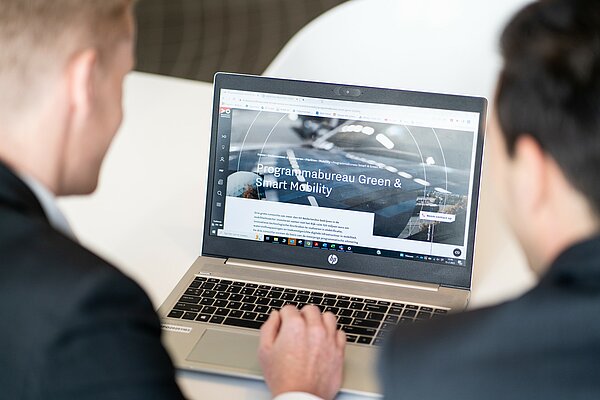
What is the purpose of the Program Office Green & Smart Mobility?
As mentioned, it is our goal to secure the Netherlands’ future earning power. An important precondition in this respect is that we want to realize the social goals and make sure that everyone can benefit from that earning power. We do this by bringing the national value chain closer together for the most important technological developments to build on a strong international position.
By specializing ourselves, we can jointly take on the increasingly competitive global market, as the rest of the world is mainly focusing on electrification of passenger transport, with large production volumes and a high level of automation. The Netherlands can focus on manufacturing battery modules and packages for specific applications, because the worldwide production chain has not yet picked up on this niche in the market. Think of busses, trucks, industrial vehicles/machinery, airplanes, and vessels. The Netherlands has many strong players in this field, such as VDL, DAF and Damen, all companies that are faced with the challenge of becoming more sustainable. We are bringing these parties together as part of the projects we are coordinating to quickly gain more knowledge and by implementing a high-mix low-volume strategy, we are jointly manufacturing the volumes that are required to remain competitive in the international playing field.
Europe and America have come to realize that they do not want to depend too much on other countries in the future. By conducting research in battery and hydrogen technology, we are acquiring knowledge on a national level, which enables us to continue manufacturing locally. For example, we are currently working on the realization of production lines for battery modules and packages, and we are developing hydrogen combustion engines and fuel cell systems.
As a result, we will have a new kind of manufacturing industry, based on the unique high-tech knowledge gained in areas such as the semiconductor industry. This is important for employment in the Netherlands. To a certain extent you will always depend on the use of certain materials. However, that dependency is being reduced because of new, innovative materials. In the years to come, it is important that recycling techniques are further improved. By maintaining production and sales in Europe, batteries and materials will stay within the European borders.
Cheaper and better recycling systems are crucial for the entire business case and for reducing the material dependency of European companies.
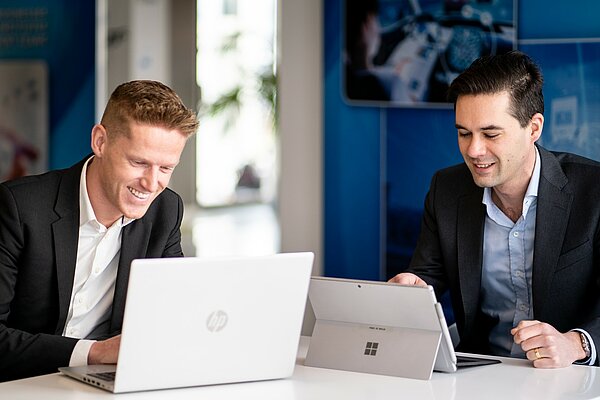
How are you going to realize this?
We are going to accelerate and intensify collaboration. Even without our help, companies will develop certain innovations and seek out collaboration partners. Not to this extent, however. Furthermore, we see that startups and SMEs are working more effectively together with large companies and knowledge institutes. To grow, startups and SMEs should be able to learn from the larger players in the field.
Conversely, it helps larger companies think in an innovative way. If a company only wants to participate, because they want to receive a grant, we always advice against such participation. We are looking for matters that are included in the HTSM Roadmap Automotive, which require collaboration and funding for part of the non-profitable portion. This way, projects help accelerate the marketing of companies, and we know that companies will continue to invest in the technology in the long term.
A good example is the partnership between Heliox and Albert Heijn. Helios is developing megawatt fast chargers, which can charge a truck within 20 to 40 minutes. By linking such technological innovations within the project to organizational aspects, such as logistics planning, you generate impact and bring the end user and developers closer together. Such a charging facility must then be integrated into an energy system. So, we also work together with parties in the energy sector. And cyber security also plays a key role. Therefore, we make sure that parties that are expert in cyber security are also involved. Ultimately, this is how you build a consortium with parties in the value chain that complement each other and that jointly realize the desired impact.
What impact does this have on the Netherlands and the rest of the world?
We are accelerating the realization of social goals. A safer and more sustainable and efficient mobility system. Fewer emissions, traffic accidents and traffic jams.
Including a clear plan on how we will make money in ten years’ time. And the Netherlands will hold such a position in the value chain that the world will look to us for the best solution. The perfect example is ASML’s unique position. We will not be able to realize this for all parts of Automotive, but the Netherlands is in the lead when it comes to charging infrastructure, chip technology and rendering heavy transport more sustainable. The fact that Milence - a company that aims to install 1,700 fast charging points for trucks throughout Europe - is establishing their office in the Netherlands is an important sign.
What does it take to ensure a successful transition?
We - the Dutch government and the industry - must realize that this transition requires a huge systemic change.
And that you cannot achieve such change with only one project or a limited number of parties. The entire value chain must help. We can only realize such change if we are trying to achieve our long-term goals in a programmatic way based on a multi-annual plan. By means of structural projects each focused on a new element of the puzzle to jointly realize a successful transition. We as Program Office Green & Smart Mobility are offering such programmatic coordination. By jointly taking up the gauntlet with the Dutch government, knowledge institutions and the industry, we can make a difference. And we are always interested in new collaborations because there is plenty to gain if you have something to share. What is your position in the value chain and which complementary knowledge and expertise do you bring to the existing collaboration? If you can convey this information in a clear way, we can put you in touch with the right partners in our network.
Interested to know more? Visit us during the Automotive Week from 16-19 April
From April 16-19, we are organizing the Automotive Week on the Automotive Campus. This major, bi-annual event is being organized by the municipalities of Helmond and Eindhoven in close collaboration with the province of Brabant, RAI Association, Brainport Development and leading industrial companies and knowledge institutes. We are inviting national and international partners, so we can show them what we are doing here and what we have achieved. All facets of the automotive industry are covered: leaders in the industry are presenting their roadmap, government policy is presented, and visitors can see and experience various demos, such as the latest trucks, passenger cars and installations. It is important that we meet in person as collaborations are further deepened during the Automotive Week, also because the entire ecosystem is meeting up and new connections are forged.
Two innovation programs have been launched as part of Green & Smart Mobility, in which various parties are jointly working on electrification and hydrogen applications in mobility. Want to know more?
Visit the Automotive Week from 16 to 19 April!
